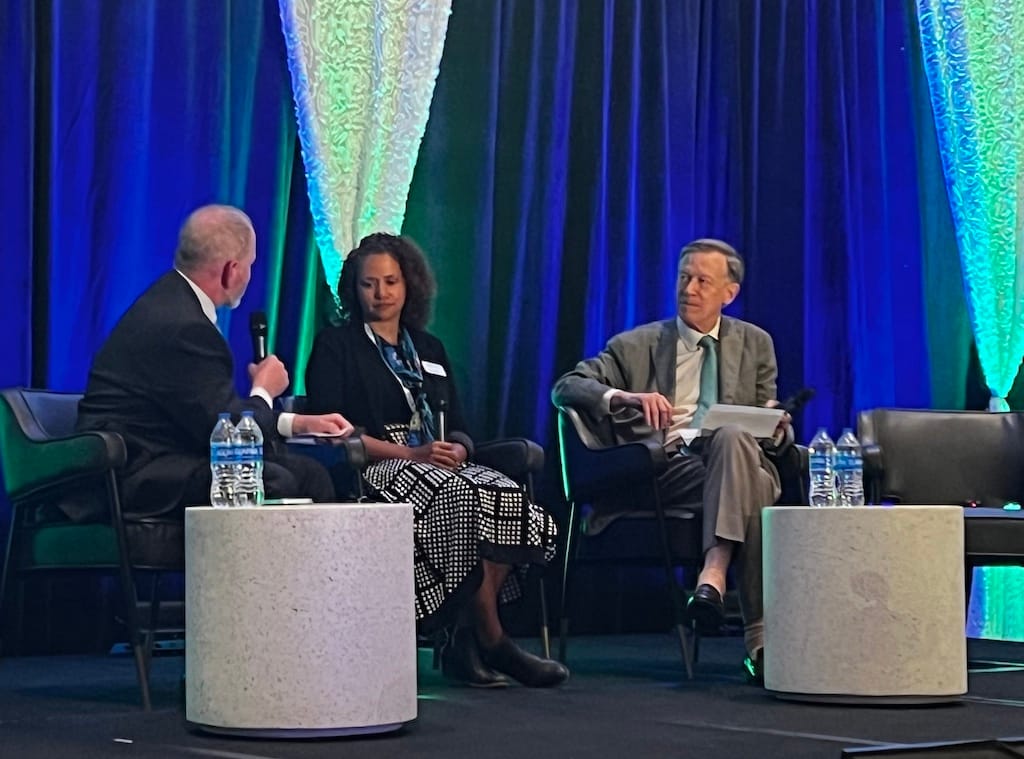Colorado Broadband Officer Lays out BEAD Hurdles
In keynote luncheon fireside chat, Sen. John Hickenlooper, D-Colo., raised concerns about some BEAD requirements.
Teralyn Whipple

DENVER, Colorado, August 8, 2023 – Colorado will face fiber and middle mile hurdles as it builds out the Broadband Equity Access and Deployment program funds allocated to it, said Brandy Reitter at during the Mountain Connect fireside chat keynote on Tuesday.
“Fiber is going to be a very hard thing to achieve in some parts of the state,” said Reitter. Colorado received $826.5 million through BEAD allocations announced on June 26.
Reitter said that many of the addresses in the state are hard-to-reach, high-cost areas. The BEAD program prioritizes fiber for connecting unserved and underserved locations in the state except for those that are considered “extremely high cost.” The definition of extremely high cost is determined by the state.
Another hurdle Reitter highlighted was the cost of middle mile infrastructure in Colorado. The state is missing more than 500 miles of middle mile infrastructure, she said. Colorado was the recipient of a $4,631,407.01 project, to BIF IV Intrepid Opco LLC, through the Enabling Middle Mile program award announced on June 16, 2023. The award will not connect all the last mile in the state.
Among other hurdles the state will face, Sen. John Hickenlooper, D-Colorado, pointed to the required 25 percent letter of credit. Under current regulations, grant applicants must provide a letter of credit to demonstrate their financial capacity to meet the program’s obligations throughout the construction process. A letter of credit is a document a bank provides on behalf of a network operator to guarantee that in the event of default of the build, the bank will reimburse the agreed upon funds to the NTIA.
“Letter of credit will be an unsustainable burden,” on providers, said Hickenlooper, and will eliminate the companies that the legislation most wants to lift up, namely minority-owned and small and rural internet service providers.
Hickenlooper’s statement follows comments by various telecommunications associations that asked the NTIA to consider alternatives to the letter of credit requirement on Friday. Commenters claimed that the requirement will prevent the internet service providers best positioned to connect the unserved addresses of America from participating in the BEAD program.
Correction: A previous version of this story incorrectly claimed that Colorado will use most of its BEAD money on wireless builds due to a mishearing of “wireline” for “wireless.”








